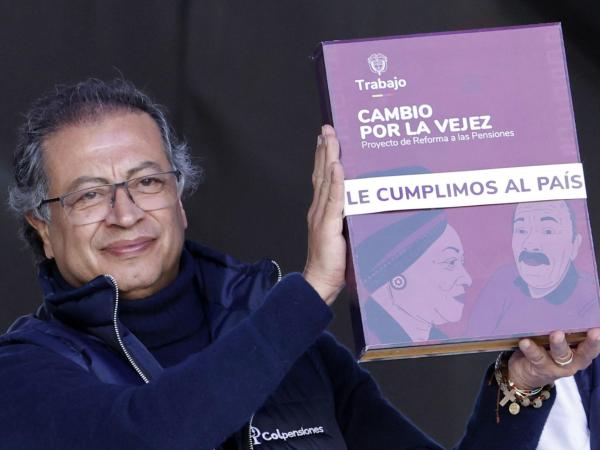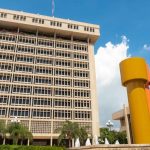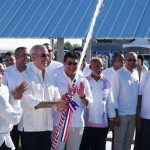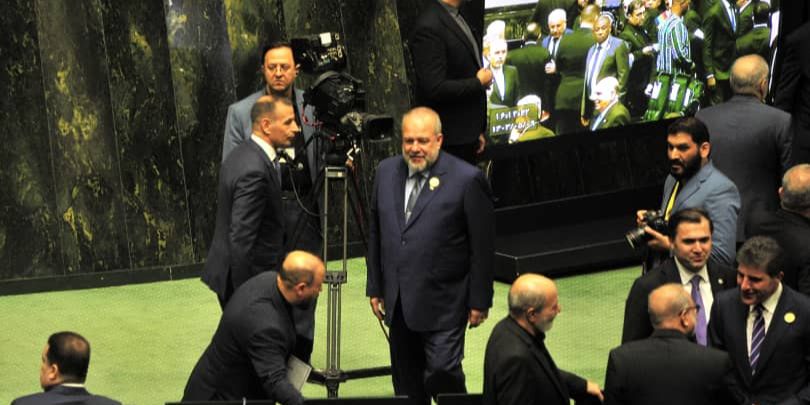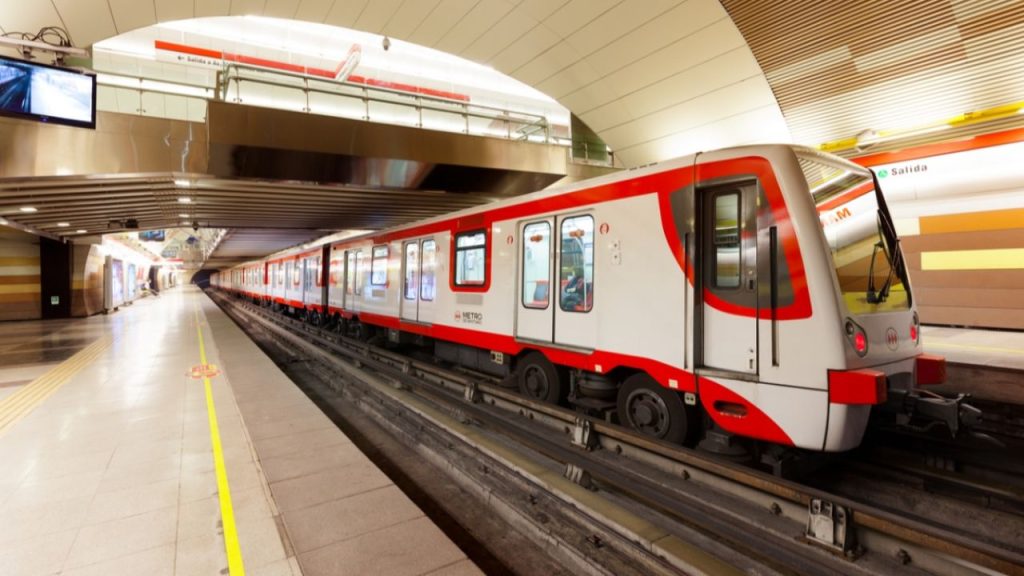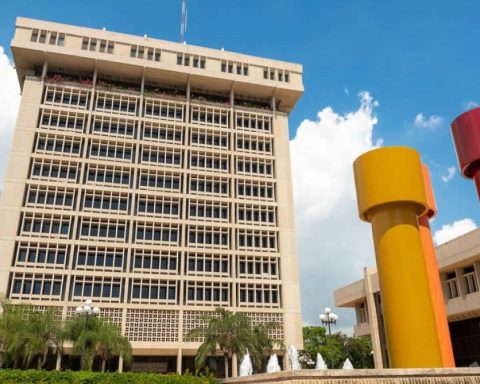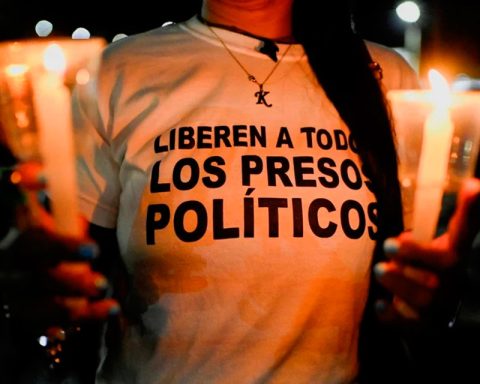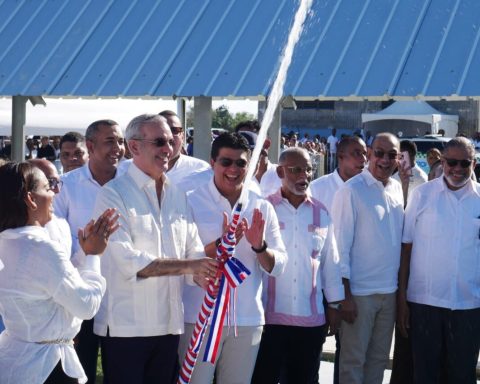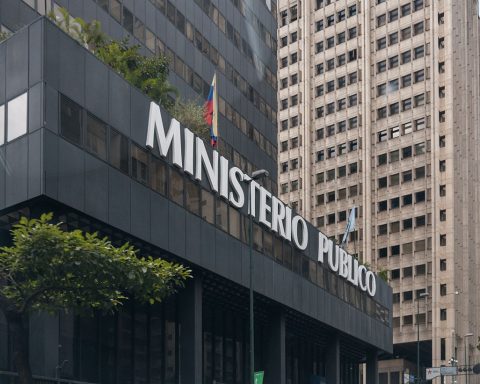In the two years of the Colombian president’s government that remainGustavo Petro will attempt to reach a national agreement that he was unable to achieve in the first half of his term in office to make the social changes that won over the electorate, a challenge for the president given the country’s political climate and his loss of popularity.
(Read more: Petro government rejects Isabel Zuleta’s reform to revive presidential reelection)
In his speech at the opening of the new session of Congress, on July 20, Petro proposed a “political pact (…) so that we agree on the reforms” and asked Congress to make a commitment to “the task of agreeing on changes, not anti-changes.”
“President Petro’s main challenge is to achieve governability and that is achieved through consensus,” Manuel Camilo González, professor of International Relations at the Javeriana University, tells EFE. These conditions They need them to advance reforms that did not go ahead in the previous legislature, such as health, labor, public services and education, pillars of what could be his political legacy.
To achieve his goals, the president will have to seek agreements in a Congress in which he does not have a majority and which, in the case of the Senate, is presided over by the opposition member Efraín Cepeda, while the reins of the House of Representatives are held by Jaime Salamanca, who was elected with the support of Petro.
Gustavo Petro
Low popularity
Petro, the first leftist ruler in Colombia, reaches the halfway point of his mandate on August 7 with his popularity eroded and an approval rating of 34.6% for his managementaccording to a survey by Invamer for Blu Radio and Caracol Television released last Friday.
The same survey indicates that two years after coming to power, only 29.4% of those surveyed believe that the country is going “on the right track”. This is due to different factors, such as the poor execution of his Government and the consequent lack of results, the deterioration of public order in several parts of the country and corruption problems involving members of his Government, as in the case of the National Unit for Disaster Risk Management (UNGRD).
For Carlos Enrique Moreno, professor at the Faculty of Political Science and International Relations at the Universidad Javeriana, Petro’s political situation will make the process of the Executive’s projects in Congress more tortuous. “We are in the second part of Petro’s government and the president’s popularity is not very good, a large part of Congress is going to start being much more critical of the bills,” says Moreno.
In that direction, the expert adds, Congress will be more demanding. “Not only because of the corruption, but because these politicians who are in Congress are going to start thinking about how they will be seen in the next year, if they will be associated (by the electorate) with people who support the current Government or if they will differentiate themselves and be critical of the Government.”
In the last legislative period the Government managed, after overcoming many obstacles, Pass 20 bills and 15 others remain alive to be debated in Congress. The Government’s main victory was the approval of the pension reform, but it failed with the health and education reforms, while the labor reform will continue its legislative process.
He also achieved the approval of the Statutory Law of Agrarian Jurisdiction, which will deal with resolving conflicts in the countryside, Origin of violence in Colombiaand the increase in the public debt quota by 17.607 billion dollars, necessary to meet debt obligations.
(More news: Laura Sarabia denounces ‘dishonest and fraudulent actions’ using her name)

Marches against Petro
The shadow of re-election
In the new legislature, according to González, the president will surely continue negotiating individual support in the House of Representatives, but in The Senate will have it more complicated because the upper house is chaired by an opponent “which is the one that will set the agenda for the most important issues to be discussed.”
The political climate will also determine whether the president goes ahead or not with the idea of calling for a referendum. a constituent assembly to make more profound changes in the country, or to revive the idea of presidential re-election, encouraged by his supporters.
Senator Isabel Zuleta, from the Historic Pact, a coalition that supports Petro, said this week that the legislative bill to revive reelection is ready. In response to this announcement, the Senate president warned: “I don’t see any room for a presidential re-election. We should focus on issues that interest the country and do not polarize.”
EFE
